Come learn about the Jewish cultural and historical legacy. European Days of Jewish Culture, September 4. This time the theme is Jewish languages. Event begins at 2:00 P.M. on the third floor of the Lithuanian Jewish Community in Vilnius.
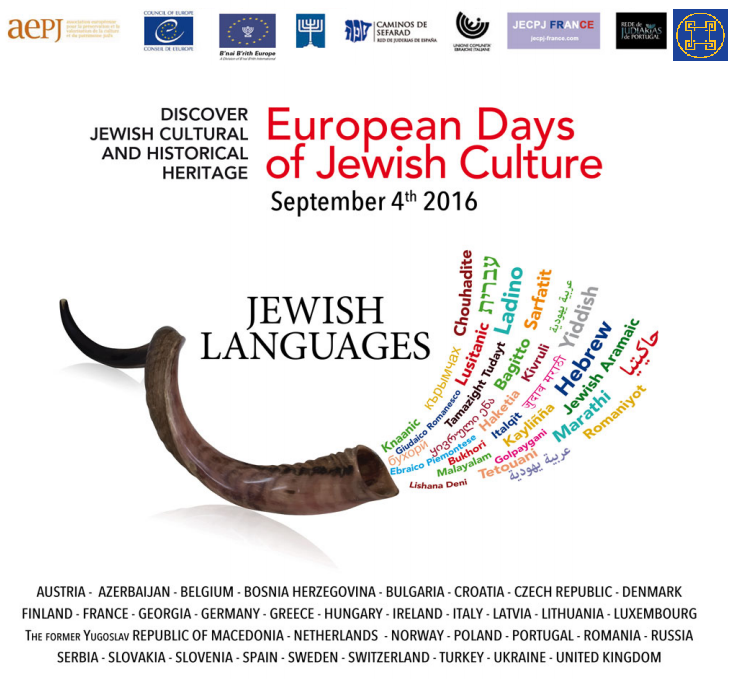
Come learn about the Jewish cultural and historical legacy. European Days of Jewish Culture, September 4. This time the theme is Jewish languages. Event begins at 2:00 P.M. on the third floor of the Lithuanian Jewish Community in Vilnius.

The Kaunas Jewish Community will mark the 75th anniversary of the murder of the Jews of Petrašiūnai and the Intellectuals Aktion on August 26, 2016. The ceremony will begin at 3:30 P.M. at the stele in memory of the Jews of Petrašiūnai. Then we will move to the Fourth Fort in Kaunas where the Intellectuals Aktion, the first mass murder of Jews imprisoned in the Kaunas ghetto, was perpetrated.
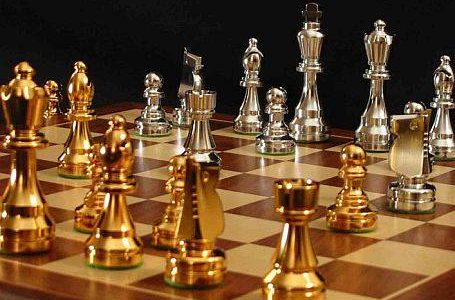
The Lithuanian Jewish Community and the Rositsan and Maccabi Elite Chess and Checkers Club invite you to a chess tournament dedicated to the memory of Kaunas Chess Club director Abraomas Šulmanas at the Lithuanian Jewish Community in Vilnius at 11:00 A.M. on August 21.
Tournament director Boris Rositsan, FIDE master
For further information and to register, contact:
info@metbor.lt
tel.: +3706 5543556
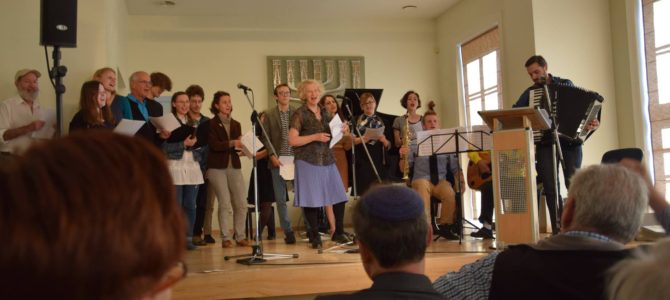
On August 11 as the Vilnius Yiddish Institute’s summer Yiddish courses came to an end, students gathered at the Lithuanian Jewish Community and sang some Yiddish songs they learned. Listen to the old classic “Vilne” and sing along if you like.
Footage here.
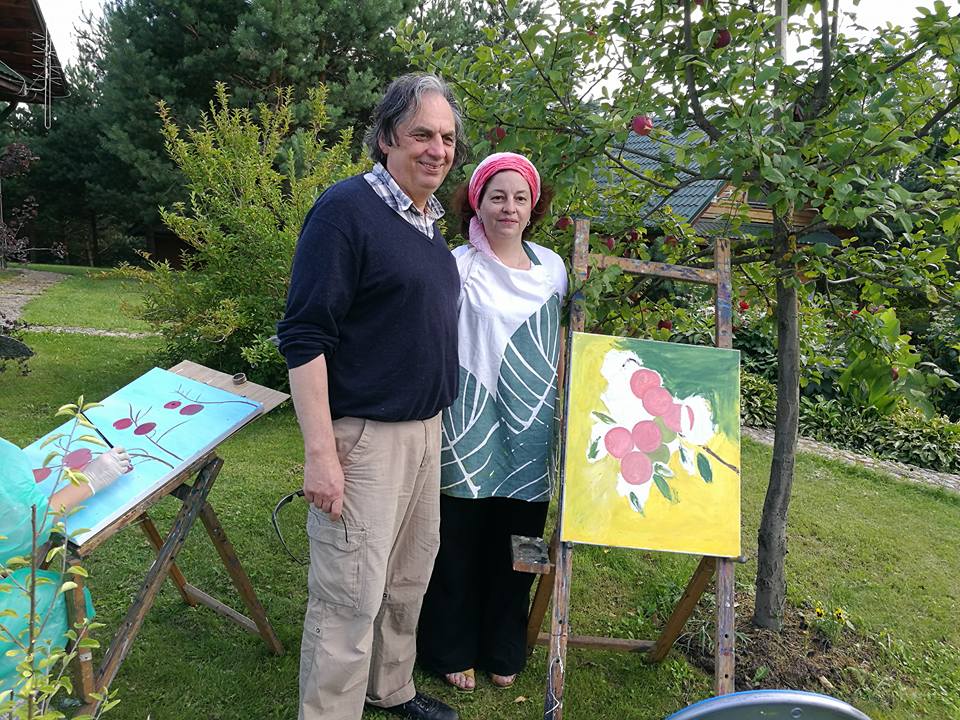
Another outdoor painting workshop, or “plein air,” took place from August 8 to 14 at the Įlanka farmstead in Šaukšteliškiai village in the Molėtai region of Lithuania, organized by the Lithuanian Jewish Community. Participants stayed in and painted a scenic natural location where the surrounding lake, skies and fresh air inspired creativity. The program included ceramics as well as painting and featured professional teachers and lecturers and a significant recreational component. Participants included two recognized Lithuanian folk artists.
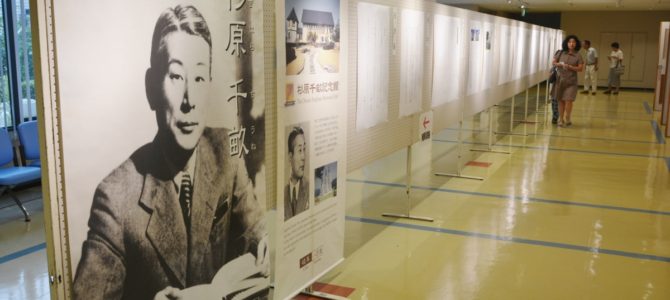
Events to commemorate Chiune Sugihara, Japanese WWII-era consul in Kaunas and a Lithuanian festival were held in Sugihara’s hometown of Yaotsu, Japan, from July 31 to August 7.
Sugihara rescued thousands of Lithuanian Jews from the Holocaust and has been recognized as a Righteous Gentile and awarded the status of Righteous among the Nations by the Yad Vashem Holocaust memorial authority in Israel.
The week of commemorations was opened by the signing of a memorandum of cooperation by Yaotsu mayor Masanori Kaneko and Kaunas municipality representative Inga Pukelytė.
Acting Lithuanian ambassador to Japan Violeta Gaižauskaitė noted the events came on the 25th anniversary of the restoration of diplomatic ties between Japan and Lithuania and characterized ties between the people of Japan and Lithuania as sincere, and relations btween the two nations friendly. She also said both countries were dedicated to preserving the memory of the noble Japanese diplomat for future generations.
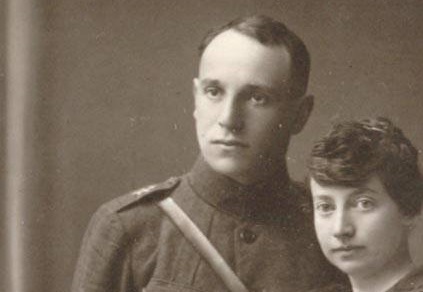
Valdimir and Regina Lazerson
by Jūratė Vaižgauskaitė
manoteises.lt
“We used to drink tea using the ‘look’ method: a lump of sugar was tied to a string and we’d look at it while we sipped tea. The tea wasn’t any sweeter for that, but we all had a good time,” Vladimir Lazerson’s daughter Tamara wrote in her memoirs. Lazerson was a professor and early practitioner of clinical psychology. They drank that imagined sweet tea in the Kaunas ghetto where they were imprisoned in June of 1941.
First professor Lazerson was thrown out of university. Then his house was taken away, his books burned and he was sent to Dachau. There he died. He had dozens of articles published and was the founder in Lithuania of several branches of psychology, and practiced clinical psychology as a military medic.
Army Medic, Peace Psychologist
Born in Moscow, Lazerson began his scholastic career at German and Swiss universities. He defended a dissertation thesis in psychology in 1911 and then went on to study medicine in Germany and Russia. His path to Lithuania was a winding one. Working as a military medic and associate professor in Kiev, he left when pogroms began and chose newly independent Lithuania as a destination.
Full story in Lithuanian here.
UPDATE: Event organizers are providing transport from Vilnius and several free seats are left! Please register for a place before August 23 by sending an email to info@lostshtetl.com
You are invited to an event to commemorate the Šeduva Jewish community murdered in the Holocaust. The event is on on August 30 and will be a kaddish at the 3 mass murder sites and the old Šeduva Jewish cemetery.
Commemorative program
9:00–9:30 Kaddish at the Jewish mass murder site in Pakuteniai forest
https://goo.gl/maps/tdN5Y3mrWJw
9:45–10:15 Kaddish at Liaudiškiai Jewish mass murder site I
https://goo.gl/maps/fhjnq5ubSfk
10:30–11:00 Kaddish at Liaudiškiai Jewish mass murder site II
https://goo.gl/maps/mYLnGLUmVuK2
11:15–11:45 Kaddish at the Šeduva Jewish cemetery
https://goo.gl/maps/ZuHGdK9EHvF2
12:00–12:30 Coffee break at the Šeduva Culture and Crafts Center
12:45-1:30 Mass at the Holy Apparition of the Cross Church in Šeduva
1:30–2:15 Yiddish song concert by Rafailas Karpis and Darius Mažintas at the church in Šeduva
Download PDF format event program
More here.
by D. Baranauskaitė
manoteises.lt
“All riders have reached the finish line and the injured have been brought by automobile, but we haven’t seen Mr. Anolik and he isn’t found among the injured. Everyone has left. The stadium is empty, but he’s still not here. Asked by telephone, all the checkpoints reported they didn’t know and that there was not a single cyclist left on the route. He only came back at 11 at night, cold and hungry.”
This is how the newspaper Sportas reported the debut of the Lithuanian state at the Olympic Games in 1924. The subject of the report, Isaac Anolik, was a Lithuanian athlete of Jewish origins and the country’s cycling champion many times over. His accomplishments didn’t matter during the Holocaust. The leading Lithuanian cyclist was shot at the Ninth Fort.
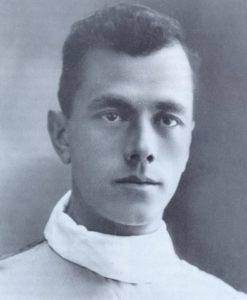
Full story in Lithuanian here.
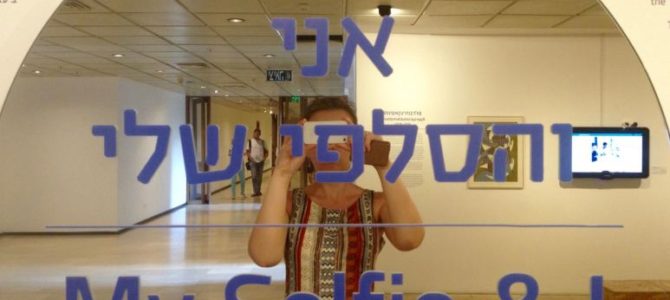
15min.lt
The Tel Aviv Museum of Art is inviting visitors to a provocative interactive exhibit called My Selfie and I. Visitors can photograph themselves as much as they like with special equipment and their images are immediately projected on a large screen. Initially it appeared as if the museum were trying to appeal to the lowest common denominator among visitors, but actually the exhibit subtly reveals the absurdity of the selfie phenomenon.
Full story in Lithuanian here.
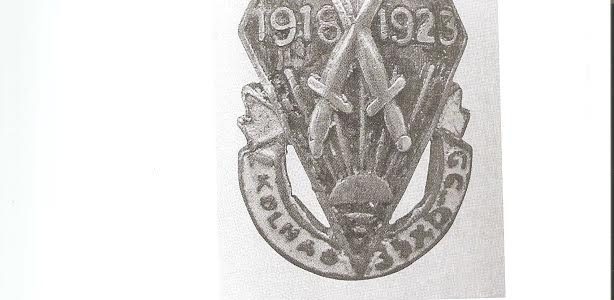
Work has begun to produce a memorial plaque to commemorate the pre-WWII Union of Jewish Soldiers Who Fought for Lithuanian Independence. The project was initiated by the Kaunas Jewish Community with support from Lithuanian Jewish Community chairwoman Faina Kukliansky, LJC cultural heritage expert Martynas Užpelkis and sculptor Gediminas Pašvenskas, who designed the plaque. The plaque is to be placed on the building formerly housing the Union at A. Mapu street no. 10 in Lithuania’s interwar capital.
Established in 1933, the Union of Jewish Soldiers Who Fought for Lithuanian Independence was originally based in Joniškis and moved to Kaunas in 1934. Besides fostering patriotism and loyalty to the state, the union also encouraged cultural cooperation between Lithuanians and Jews and operated throughout the country, with about 3,000 members in total. Twenty Jewish soldiers were decorated with the Order of the Cross of Vytis for bravery in battle and other orders and decorations were also bestowed on the veterans of the early Lithuanian struggle for independence following World War I. The union participated with its regalia at official events and ceremonies and publicly displayed their devotion and loyalty to Lithuania.
A memorial to Samuelis Petuchauskas, deputy mayor of Šiauliai from 1921 to 1940, is to be unveiled at the city of Šiauliai municipality at Vasario 16 street no. 62 at midday on August 29, 2016. Šiauliai mayor A. Visockas is to open the ceremony.
Šiauliai Jewish Community chairman J. Buršteinas and other members are scheduled to attend along with other notable local figures, representatives of the Lithuanian Foreign Ministry, members of the family of Jackus Sondeckis family and others.
More information to follow.
In an article published on the website of the literary and arts magazine Literatura ir Menas, Mindaugas Kvietkauskas shares his memories of the late Fira Bramson.
Esther’s Scissors
by Mindaugas Kvietkauskas

I will call her by a biblical name, Esther. Now I may. That was how the rabbi called her to eternity so recently his prayer uttered before the first three handfuls of earth were sprinkled on her shrunken body, cut off from the world of the living.
In life it was different: she was Fira, sometimes Firochka. I smile when I think how unrecognizably the name of the queen of Persia, meaning morning star, has changed in our lands, in the daily language of the Yiddish dialect washed by the great Slavic languages. But now that she has entered a time of more perfect reckoning, Fira has again become Esther, the daughter of Israel, the morning star, Ester bat Israel.
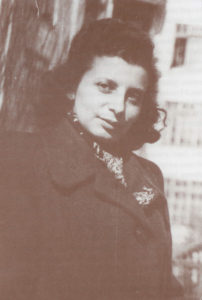 Fira Bramson in 1949
Fira Bramson in 1949
Full piece in Lithuanian here.

Raoul Wallenberg’s passport photo, June, 1944, Sweden.
The story of the disappearance in 1945 of Raoul Wallenberg, the Swedish diplomat who rescued thousands of Hungarian Jews from the gas chamber, is one of the greatest mysteries of World War II, the New York Times writes.
Suspicion in the disappearance of Wallenberg initially fell on the Soviet Union. After the Soviet occupation of the city Wallenberg’s contacts with high-ranking Nazis and Americans hinted at espionage, with the story of rescuing Jews from the Holocaust possibly a not-very-good cover story. The story of his disappearance has remained a mystery right through Gorbachev’s era of perestroika and throughout the years following the chaos which ensued from the collapse of the Soviet Union.
This summer, however, newly published diaries from a former head of the KGB found hidden in the walls of a dacha are shedding new light and for the first time it can be said with confidence Wallenberg was murdered in a Moscow prison. “I have no doubts that R. Wallenberg was murdered in 1947,” Ivan Serov, a Soviet military officer and director of the KGB from 1954 to 1958, wrote.
Full story in Lithuanian here.

![]()
by Efraim Zuroff
The new German prosecution policy is a far better reflection of the reality of the crimes committed by the Nazis during World War II than previous iterations.
Last week, while much of the world’s attention was focused on the Olympics in Rio, a news item from Germany with potentially dramatic implications barely merited a headline. According to news agencies, Jens Rommel, the relatively new director of the Central Office for the Clarification of Nazi Crimes in Ludwigsberg, Germany (Zentrale Stelle) announced that his agency had initiated the investigation of the crimes committed in three Nazi concentration camps, and was currently considering charging at least eight people, born between 1918 and 1927 and living in Germany, who had served in Stutthof, a concentration camp located near Danzig, with accessory to murder, a criminal offense which carries a sentence of five years in prison. Four of the eight people in question were men who had served as guards at the camp, while the remainder were women who had performed various functions in the camp office.
On the surface, the story should hardly have raised any eyebrows, but in the light of the history of the prosecution of Nazi war criminals in Germany during the past decade, this news indeed deserved a headline.
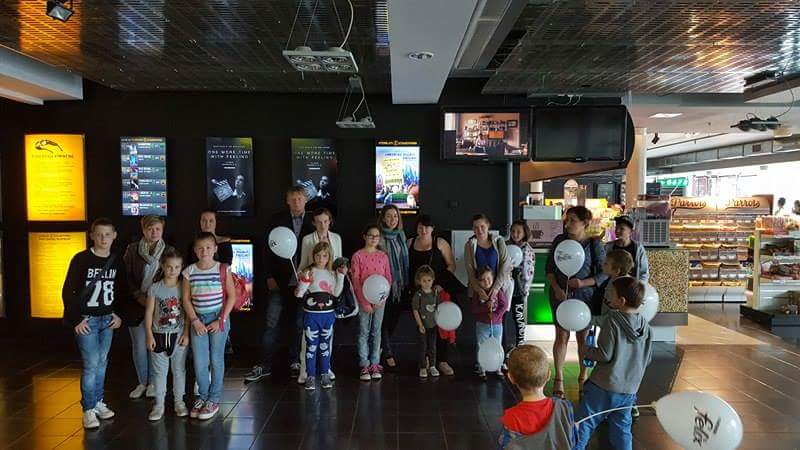
On August 14 the Jewish Family Service of the Lithuanian Jewish Community hosted a wonderful outing for children. The Forum Cinema of Vilnius has been showing different animated films for children with discounted prices for groups of children. The Jewish Family Service decided to make use of the opportunity and Sunday morning parents and children attended a showing of the Little Prince. Although it is an animated film based on moral values for children, the parents were also able to take some real insights away from the experience. Twenty-eight program participants took part and the program coordinator said it was a great success.
“This is a way to spend some very meaningful time and it also compels thinking and discussing the film viewed,” one mother who took part said.
The program coordinator plans more such trips to movies, selected by hand and heart.
In her memoirs Alexandra Brushtein, the only child of famous prewar Vilnius doctor Jakub Wygodzki, said her father was the only person who could explain to her why one or another person is stupid. She said it was sad her father didn’t have time to talk with her because he was a busy doctor.
Besides being a doctor, Wygodzki was a member of the council for the restoration of Lithuanian statehood, the minister for Jewish affairs in the first government and the chairman of the Vilnius Jewish Community.
But he is best known because of his good heart and selflessness. He treated poor patients and came back from operations at night so tired he couldn’t eat. Later, in old age, he saved Jews fleeing persecution, and his life was cut short at the Gestapo prison in Vilnius.
Full story in Lithuanian here.
To whom it may concern,
In light of Mr. Gary Eisenberg’s recent article about Lithuanian citizenship for Litvaks published in Israel and South Africa, the Lithuanian Jewish Community states for the record:
1. There is no special legislation or program for recruiting Litvaks for Lithuanian citizenship. This is disinformation. The existing legislation on applications for Lithuanian citizenship by prewar citizens of Lithuania and their offspring was only reworded slightly to prevent misinterpretations of the intent of legislators by public servants to the detriment of Jewish applicants and applicants of other ethnicities. As far as we are aware, there is no “Lithuanian Citizenship Programme” for Litvaks in Lithuania or anywhere else, despite what was written in Mr. Eisenberg’s article.
2. The Lithuanian Jewish Community and the Choral Synagogue in Vilnius with the Vilnius Religious Jewish Community are firm followers of the traditions of the Vilna Gaon and have nothing to do with Chabad Lubavitch or their rabbi. We have a rabbinate of two rabbis who are firmly within the mitnagedic tradition. Mr. Eisenberg’s statements he celebrated Sabbath with Chabad Lubavitch Rabbi Krinsky, followed by the statement he visited the Choral Synagogue, could mislead some readers into thinking the Choral Synagogue in Vilnius is a Chabad Lubavitch center, which it is not.
Sincerely,
Faina Kuklianskay, attorney,
chairwoman,
Lithuanian Jewish Community

As another successful summer program of the Vilnius Yiddish Institute at Vilnius University wound down, writer Ellen Cassedy and the students, faculty and staff held a vegetarian potluck August 10.
Cassedy gave a brief presentation in Yiddish about the remarkable prewar vegetarian cookbook by Fania Lewando and spoke about her life and her vegetarian restaurant which was located on what is now Vokiečių street in Vilnius. Using slides Cassedy showed period photographs and pictures of foods featured at the restaurant, occasionally clarifying her remarks in English.
A full classroom of perhaps 30 people listened intently as latecomers filtered in, some bearing plates and bowls of food. A long table in front of the podium enticed the eye with a variety of dishes made by the students and staff themselves.